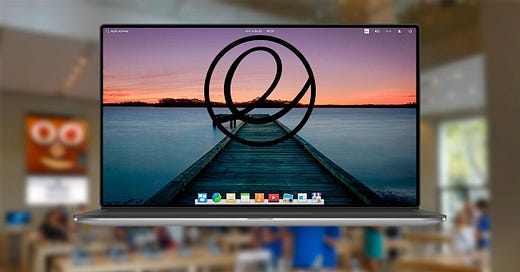The Sad Collapse of Elementary OS
WHAT IS ELEMENTARY OS?
Over the last month or so, we have witnessed the collapse of one of my favorite FOSS projects, elementary OS. For the uninitiated, elementary is a distribution (distro for short) of the GNU/Linux (commonly referred to as just “Linux”) operating system. While distinctly Linux, elementary OS is styled to look and, in some ways, feel like Apple’s macOS. That statement may ruffle some feathers, but let’s be real here; there’s a reason it’s the landing spot for a lot of Mac users making there way over to Linux. It’s a stable desktop experience as well. It’s based on Ubuntu Linux, but to my understanding the developers break from Canonical’s (Ubuntu’s parent company) bi-annual release cycle, adopting a release-it-when-it’s ready approach.
The elementary OS project has also contributed a lot to the wider Linux community with projects such as Plank (their dock application), Geary (a nice email client), Pantheon (the desktop environment that makes Gnome 3 actually look nice), the App Center which aimed to make it easier to donate to developers by recommending a price for the different software in the store (though free is always an option), and various design elements including the elementary icon set in LibreOffice, the Humanity icon set in Ubuntu and it’s derivatives, and more. I’m sure I’m missing some things here, but the point remains that they’ve done a lot of good work over the years.
MY EXPERIENCE WITH ELEMENTARY
I first discovered elementary shortly after their first release (codenamed Jupiter) back in 2011. I was new to Linux and was having fun bouncing around, distro hopping to find what I liked. I had moved to Linux as my daily driver during the summer of 2010 with Ubuntu 10.04 and later upgraded to 10.10. It was exciting and I was learning a lot about how the system worked. Unfortunately, the next year with the realease of Ubuntu 11.04, the project moved away from the amazing Gnome 2 desktop to their own home-grown environment called Unity. There’s a lot of hate for Unity (and for good reason), but these days I can see the good things about it as well. My problem was that at the time I was running a low-spec Acer netbook. Remember netbooks? Those cute little laptops with barely enough under the hood to run much more than the operating system and maybe one or two apps? Mine had an Intel Atom CPU and about 4 GB of memory so when Unity was rolled out, it slowed my machine down to a crawl.




